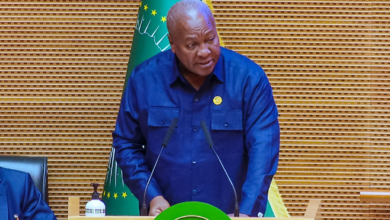African Telecoms: What if the real risk was not competition, but inaction?
OTT, hyperscalers, regulation, investments… In this Cart’Afrik, Didier Kla warns: African telecoms must become the architects of the digital era — or risk being mere spectators. By Didier Kla*

A model running out of steam
In less than ten years, African operators’ voice and SMS revenues have melted away like snow in the sun. The smartphone had opened up a golden era with the explosion of mobile data. Yet this growth is also slowing down, held back by saturated urban markets, increased regulatory pressure on tariffs, and the rise of digital alternatives. The data Eldorado is no more. The signals are clear: the historical model is no longer enough to secure tomorrow’s growth.
The triple disruption reshaping the market
This slowdown is only the visible part of a much deeper transformation.
First disruption: competition has multiplied. OTT players such as WhatsApp or Zoom are capturing the value once generated by calls and SMS, while hyperscalers (AWS, Azure, Google Cloud) are eroding the B2B market. African startups, meanwhile, are innovating at lightning speed in strategic sectors such as fintech, e-health, or agritech. And now, satellites such as Starlink or OneWeb are challenging the historic monopoly of connectivity.
Second disruption: the regulatory framework is becoming more demanding. Mandatory universal coverage, stricter monitoring of quality indicators, constant pressure to reduce tariffs… Constraints are weighing more heavily on margins and limiting traditional profitability levers.
Third disruption: the necessity of massive investments. Whether it is deploying fiber, generalizing 4G/5G, building data centers, or strengthening cybersecurity, everything still needs to be built. And these projects require considerable capital in sometimes uncertain economic contexts.
From threat to opportunity: five levers to act now
Faced with this triple shock, standing still is the same as moving backward. Operators must shift from being mere data carriers to becoming true architects of Africa’s digital future. The first lever is evolving towards a TechCo model. It is no longer only about connecting, but about offering integrated solutions around cloud, cybersecurity, AI, and data management. African companies and institutions need technology partners, not just access providers.
Second lever: building strategic alliances. Instead of viewing cloud giants as rivals, they must be seen as potential allies. By becoming local hosts or integrators, operators can secure a central role in digital ecosystems.
Third lever: co-innovating with local startups. African markets have strong specificities, and young startups understand these realities better than anyone. Connected health, smart agriculture, digital education… such collaborations can generate high-impact solutions.
Fourth lever: reinventing infrastructure. Equipment sharing, network automation, virtualization through SDN/NFV… so many ways to cut costs while improving performance and flexibility.
Finally, fifth lever: rethinking customer relations. The challenge is no longer just about selling a package, but about creating a tailor-made, distinctive experience that fosters long-term loyalty.
Act before it’s too late
Africa remains one of the most promising telecom markets in the world. But this promise will not materialize for players who choose to patch up a declining model rather than reinvent it. In five years, it may already be too late to catch up. Operators now have the unique opportunity to move from the role of mere access providers to catalysts of Africa’s digital transformation. It is a strategic choice that will determine not only their future but also the continent’s ability to build a sovereign, innovative, and inclusive digital ecosystem.
*Didier Kla — A digital pioneer and visionary leader in Africa, with 28 years of experience, he has shaped digital transformation in Côte d’Ivoire and across Africa, combining strategic leadership, technological innovation, and commitment to digital sovereignty.






